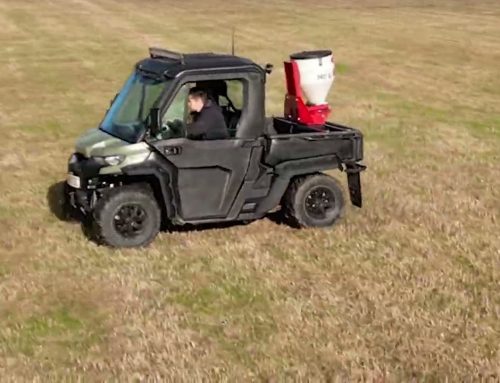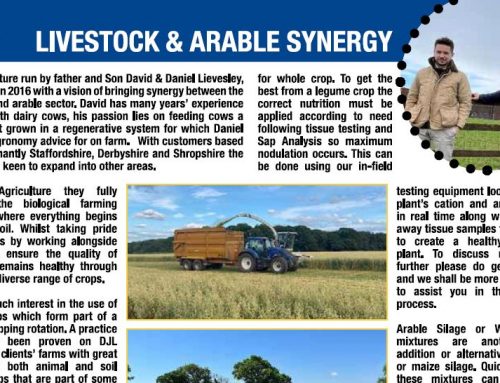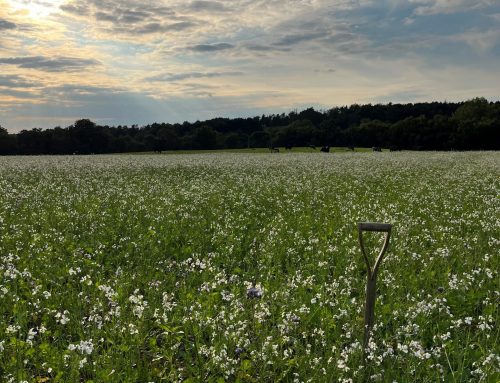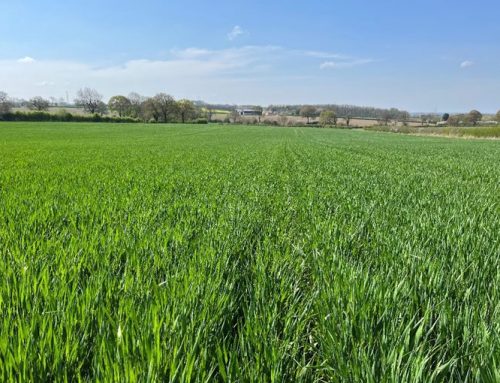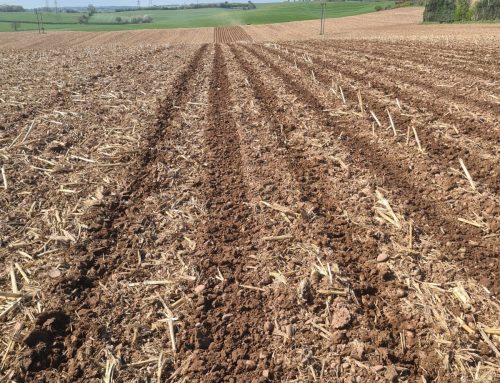April Newsletter 2022 – Issue 2
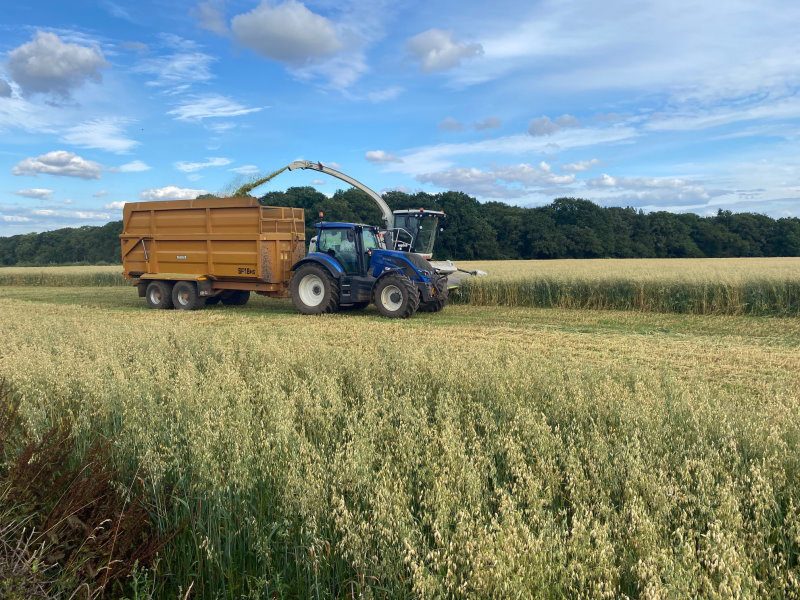
2021 Whole crop grown at Mycock Farming Ltd, Hamstall Ridware, Staffordshire

April Newsletter 2022
Issue 2
Wholecrop Oats, Peas and Vetch
There has recently been a vested interest towards growing this crop, so I felt it was suitable to write Aprils Newsletter on just the crop!
Arable Silage or Whole crop mixtures
Arable Silage or Whole crop mixtures are an ideal addition or alternative to grass or maize silage. Quick growing, these mixtures can be taken for silage in 10-12weeks from sowing or left until 14 -16weeks to be harvested as whole crop. These mixtures can act as an excellent nurse crop to an under sown grass ley although for successful grass establishment, the arable silage mixture should be harvested no later than 10-12weeks from sowing.
Suggested seeding rates
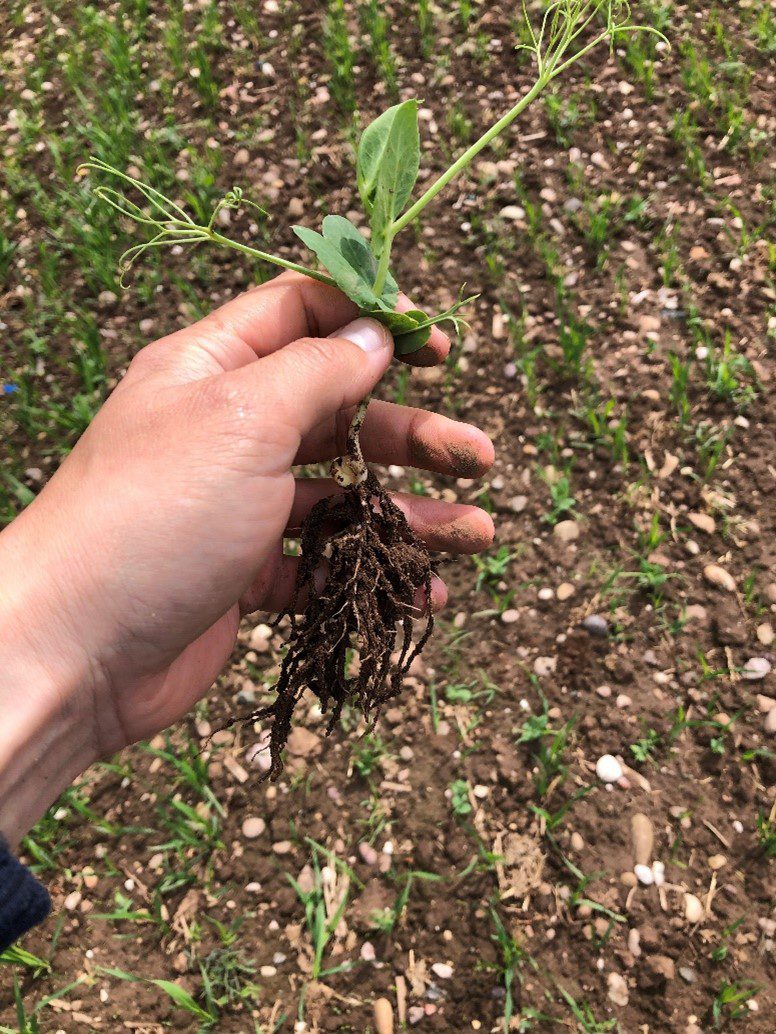 Suggested seeding rate is 75-85 kilos per acre if alone or 50-60 kilos per acre if planted with under sown grass seed.
Suggested seeding rate is 75-85 kilos per acre if alone or 50-60 kilos per acre if planted with under sown grass seed.
For direct drilled established crops increase seed rate by 10 -20% depending on soil type. The crop is usually planted when conditions allow, and soil temperatures are right, last year the majority was sown the 3rd and last week of April.
The photos of the early establishment in the crop was taken on May 18th, the crop was then fed with a bespoke nutrient foliar spray to increase nodulation on the legume plants.
Growing this crop for nutritional purposes to dairy cows
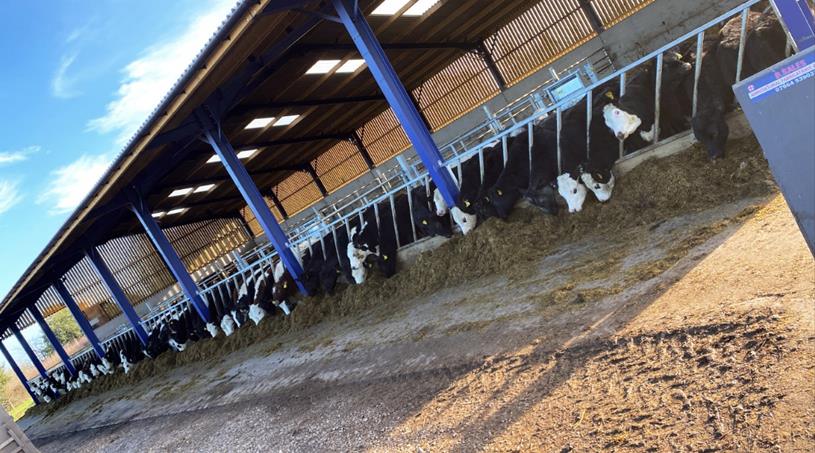 For those growing this crop for nutritional purposes to dairy cows, this whole crop forages provides an excellent feed with a well-balanced combination of starch and protein.
For those growing this crop for nutritional purposes to dairy cows, this whole crop forages provides an excellent feed with a well-balanced combination of starch and protein.
Amino acids – they require different amounts of each of the 10 essential amino acids, including: phenylalanine, valine, threonine, tryptophane, isoleucine, methionine, histidine, arginine, leucine, and lysine.
Methionine and lysine are the two most studied essential amino acids and have been shown to be limiting output of milk protein in dairy cows.
The feed quality of this whole crop has been proved and backed up by forage analysis.
For Feeding advice, formulation of diets and rations please do get in touch, this is then backed by a ‘hands on’ presence on farm, resulting in cost effective rations that really work!
Oats peas and vetch mixture

Oats
The Oats peas and vetch mixture is a great crop to increase the fertility status of a depleted soil that may be struggling with compaction or nutrient recycling.
The oats act as great phosphorus scavenger and when companioned with peas and vetch as a nitrogen fixer they provide key nutrients to the plant reducing the reliance on artificial fertilisers which will be detrimental to the soil’s biology. Where organic manures are applied the crop can virtually be grown on no extra fertilisers, although Foliar sprays are advised according to need and tailored based on tissue sampling.
The diversity in the three different increase the amount of root exudates given out and the bigger the crop the better this is for the rhizosphere.
what happens in the rhizosphere drives most of what happens biologically in the soil. Secondly, it is the organic material (in both quality and quantity) that feeds the soil biota, and the term ‘soil organic material’ includes the plant roots and root exudates (carbon-containing compounds that leak from roots).
bacteria and fungi use root exudates (and the dead sloughed cells from the root) as a food source to grow and reproduce. Many types of bacteria that live in the rhizosphere will produce plant-growth-promoting substances that increase root growth, thereby providing themselves with increased root area to colonise, and more exudates for food.
Rhizosphere interactions often produce changes in soil structure. Sticky secretions from bacteria, the glomalin from mycorrhizas, and hyphae from these and other fungi, along with exudates and dead root cells, will bind soil particles to create aggregates and a unique habitat for other soil organisms.
Nurturing the build-up of a biologically diverse rhizosphere to compete with pathogens and damaging insects. In my experience, most healthy plant rhizospheres have an adequate population of Bacillus and other bacterial species that provide protection against pests and diseases.
An economic benefit for choosing this crop over maize brings in a significant growing cost reduction in Seed, fertilisers and Chemical.
Based on last year’s 12t/Acre crop of Oats, peas, and vetch the growing costs were 54% Less when compared with a Maize program for seed, fertilisers, and chemicals.
With the current price volatility in ag crop protection an estimated comparison is:
Oats /Peas & Vetch
- Seed = £100/ha
- Fertilisers = £115/ha
- Chemical = £20/ha
- Trace Elements = £20/Ha
Maize
- Seed = £225/ha
- Fertilisers = £300/ha
- Chemical = £60/ha
- Trace elements = £25/ha
South Staffs Water offer
 South Staffs Water are currently offering SPRING grants to farmers within the Blithe, Tame Anker Mease and Worcester Middle Severn Catchments. The SPRING grant offers up to £10,000 per year for on- farm improvements which contribute towards both field and capital works. The aim of the scheme is to help reduce the concentrations of pesticides, nitrates and phosphates at the water treatment works and borehole sites.
South Staffs Water are currently offering SPRING grants to farmers within the Blithe, Tame Anker Mease and Worcester Middle Severn Catchments. The SPRING grant offers up to £10,000 per year for on- farm improvements which contribute towards both field and capital works. The aim of the scheme is to help reduce the concentrations of pesticides, nitrates and phosphates at the water treatment works and borehole sites.
The SPRING grant has been running since 2016 and has grown year on year in terms of the number of farmers involved and the catchment areas covered under the scheme. It has also evolved to suit the farmers needs via the introduction of new trial options which are initially trialled on our two trial farms with Becky and Trev Mycock and Rob Atkin and then if successful rolled out into the greater scheme. Oats, peas, and vetch is one of these options for the trialled options that is now being introduced into the scheme and is paid at a rate of £110/ha non under sown or £150/ha under sown.
If you would like more information please contract Nina Yiannoukos-Benton the Senior Catchment Advisor on Mobile: 07341734293
Email: ninayiannoukos-benton@south-staffs-water.co.uk
If you wish to discuss the growing of this crop in further detail then please do get in touch with us,

